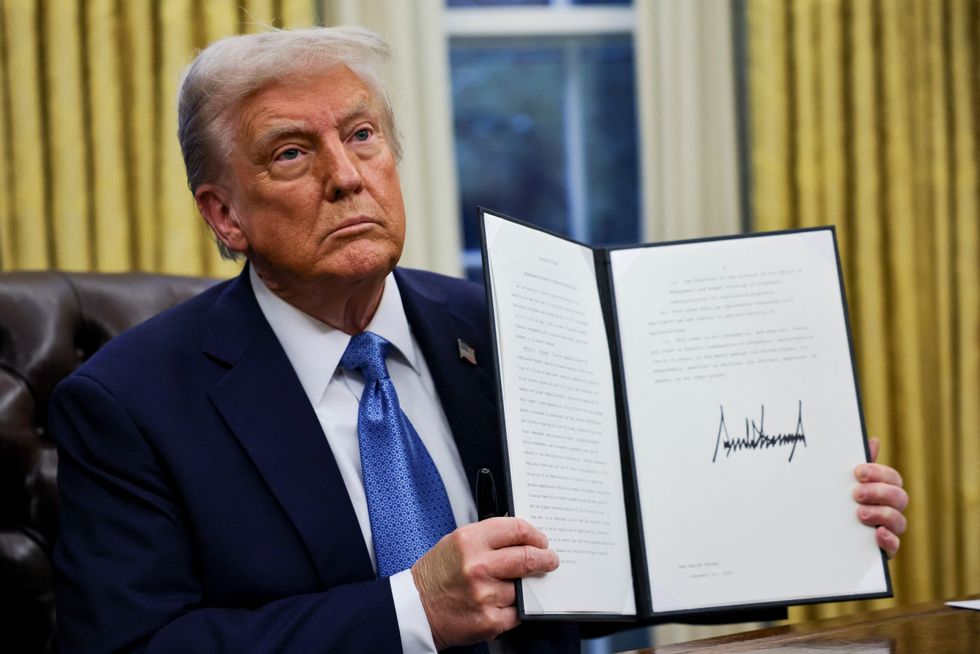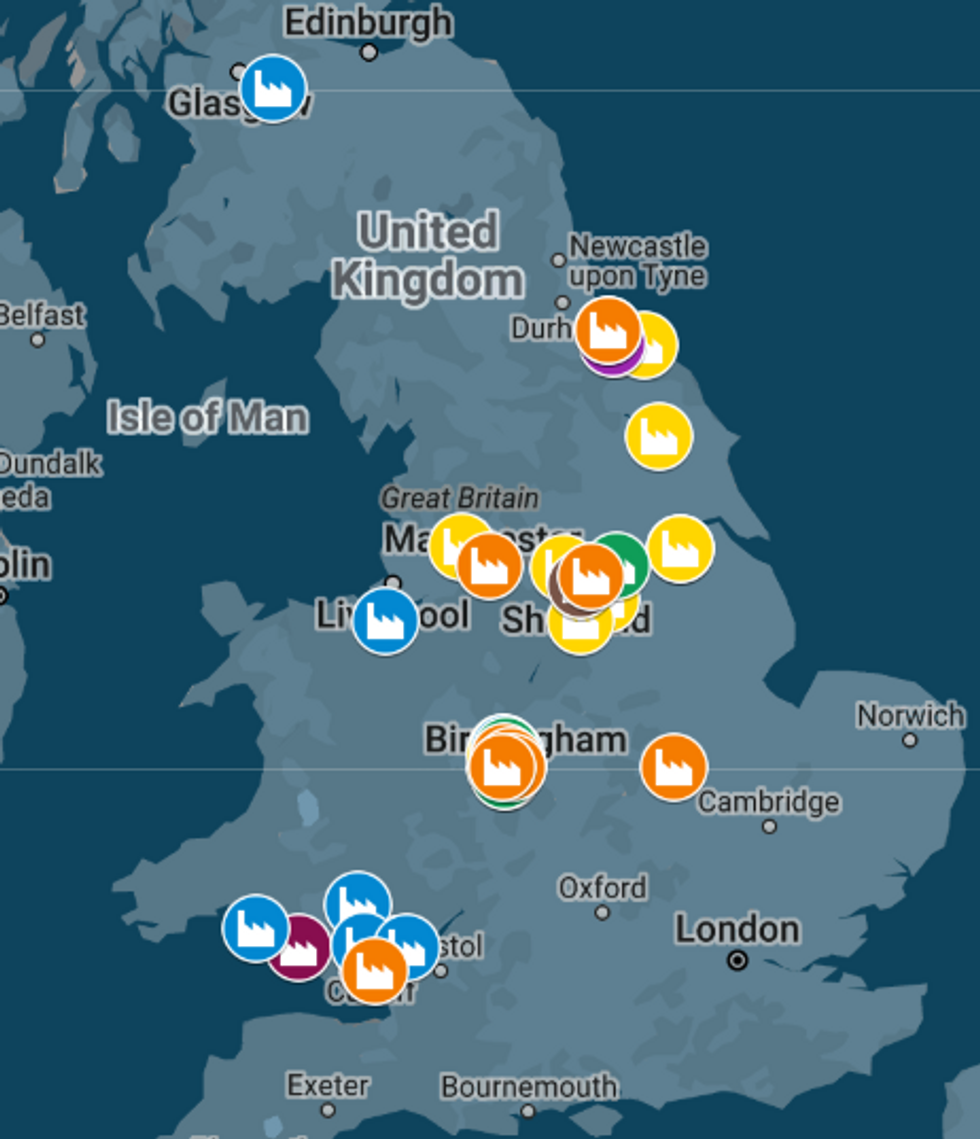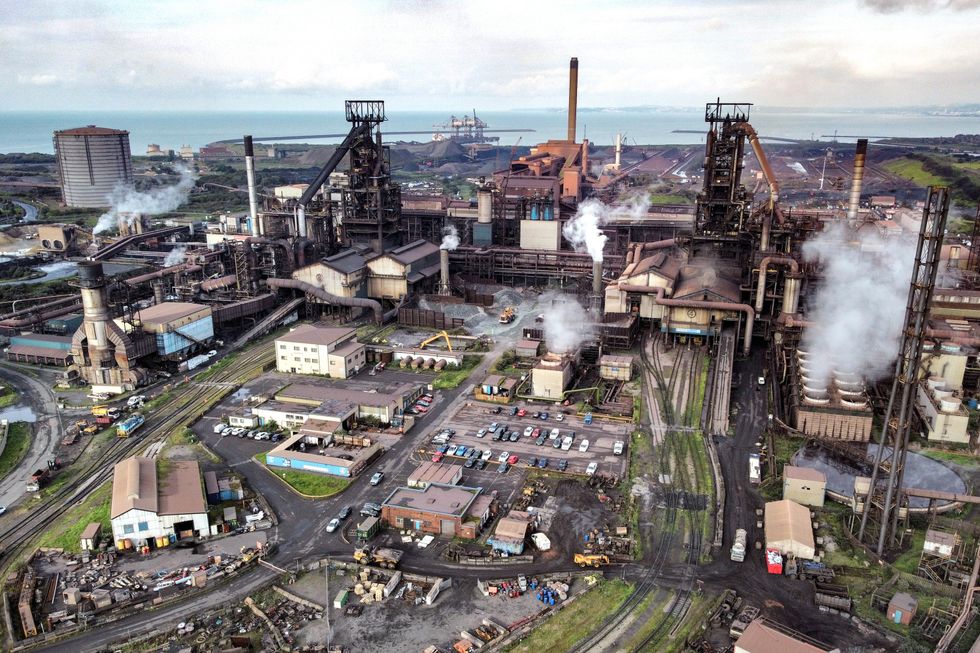Wales, Sheffield, Birmingham and Middlesbrough: How Trump's steel tariffs will affect our industrial cities
Trump says he will slap tariffs on all steel imports to the US including the UK despite predictions Britain would be spared
Don't Miss
Most Read
Trending on GB News
Donald Trump has said he will slap 25 per cent tariffs on all steel imports to the US, despite earlier indications the UK may be spared.
The President sent shockwaves around the world on Monday when he told reporters on board Air Force One ‘any steel coming into the United States is going to have a 25% tariff.’
It is the latest move in a string of trade policy announcements that Trump sees as protecting American industry while raising tax receipts.
But critics say the move will lead to retaliatory tariffs that will damage the US economy, driving up inflation.
Trump, who has been publicly attacking Canada, Mexico and the EU, was expected to leave Britain out of this latest round of tariffs, so the blanket approach will have sent Labour heads spinning this morning.
It poses a huge question for Sir Keir Starmer. Does the PM retaliate, take plaudits for standing up to a bullish Trump but risk damaging the already precarious special relationship with the US?
Or does he accept the tariff, damage the UK steel’s industry but maintain his relationship with Trump’s America?
It is a question many civil servants and Labour government members will be turning over right now.
Much of the debate will be based on how much the steel industry contributes to Britain’s economy in terms of jobs and tax receipts.
Also in the mix is the belief Britain needs to be able to make it’s own steel for things like defence and it is too important a commodity to become reliant on foreign imports from countries who produce steel for much less like China.
However, there will also be a strong consideration for environmental impact of making steel, particularly as Ed Miliband champions Britain’s green, net zero future.
 Trump is continuing to pursue his tariff agenda REUTERS
Trump is continuing to pursue his tariff agenda REUTERSWhere will be hit hardest?
Steel UK, who represent the steel industry in Britain, says Trump’s tariffs will be ‘devastating’ for the industry.
UK Steel Director General, Gareth Stace, said: "The imposition of US tariffs on UK steel would be a devastating blow to our industry.
“The US is our second largest export market after the EU. At a time of shrinking demand and high costs, rising protectionism globally, particularly in the US, will stifle our exports and damage over £400 million worth of the steel sector’s contribution to the UK’s balance of trade.
"It is deeply disappointing if President Trump sees the need to target UK steel, given our relatively small production volumes compared to major steel nations.”
The UK exports around 200,000 tonnes of steel per year to the US, worth over £400m. This is well behind China (6 million tonnes), Brazil (4.1million tonnes) and Mexico (3.2 million tonnes).
33,700 people are directly employed via steel in the UK with a further 42,000 in employed in supply chains.
Steel hotspots that would be hit hardest by Trump’s tariffs include south Wales, notably steelworks outside of Cardiff and Port Talbot, and also Sheffield, Birmingham and Middlesbrough.

Steel hotspots in the UK
Steel UK
TakeWales for example. In Port Talbot, a proud ‘steel town’ on the south Wales coast, a huge 8,500 predominantly localpeople are employed by the steelworks.
In Cardiff, Celsa steel, who operate a steelworks on the outskirts of the city, employ 2,000 (including downstream fabrication facilities).
Not only is steel a big employer for these towns, but it also pays higher than the average wage in the area.
The median steel sector salary is £37,315, 26 per cent higher than the UK national median and 35 per cent higher than the regional median in Wales, Yorkshire, and Humberside, where its jobs are concentrated.
In terms of the wider economy, steel no longer makes up such an important contribution to the country’s finances.
“The economic output of the steel industry sector totals £2.4 billion, 0.1% of the UK economy and 1.2% of manufacturing output,” found a House of Commons research briefing in 2023.
LATEST FROM MEMBERSHIP:
 Tata Steel factory in Port TalbotPA
Tata Steel factory in Port TalbotPABut Steel UK leader Stace emphasised that the UK's steel is of the highest quality. He appeared to advocate for Labour to retaliate with tariffs of its own on Trump’s America.
“The UK produces world-leading steel, supplying the US with high-quality products for defence, aerospace, stainless, and other critical sectors, materials that simply cannot be replicated elsewhere,” he added.
“At the same time, the introduction of further US tariffs will inevitably divert global trade flows, with excess steel potentially redirected to the UK market.
“This reinforces the urgent need for watertight UK trade measures in 2026 to prevent surges in imports following the UK’s steel safeguards expiry.
“Accelerating the UK’s CBAM to 2026 would provide an additional layer of protection against unfairly priced steel. The UK Government must act decisively to shield our domestic industry from the fallout of rising global protectionism."
Today, European Commission President Ursula von der Leyen appeared to threaten a trade war with Trump over the tariffs, stating 'unjustified tariffs on the EU will not go unanswered.'
"They will trigger firm and proportionate countermeasures. The EU will act to safeguard its economic interests.
"I deeply regret the US decision to impose tariffs on European steel and aluminium exports. Tariffs are taxes - bad for business, worse for consumers," von der Leyen added.
This poses another question for Starmer as the Labour PM has been working hard to 'reset relations' with the EU.
By siding with the the EU and criticising Trump's tariffs, Starmer may have furthered his EU reset, but risking Trump's ire is a major gamble.
In a blow to Trump, the markets in the EU and Britain have rallied and rose slightly after Trump’s bravado failed to strike fear into them.
Commentators have said this could be because Trump enacted these tariffs in 2018, but the US was forced to U-turn under industrial pressure just a few years later.







